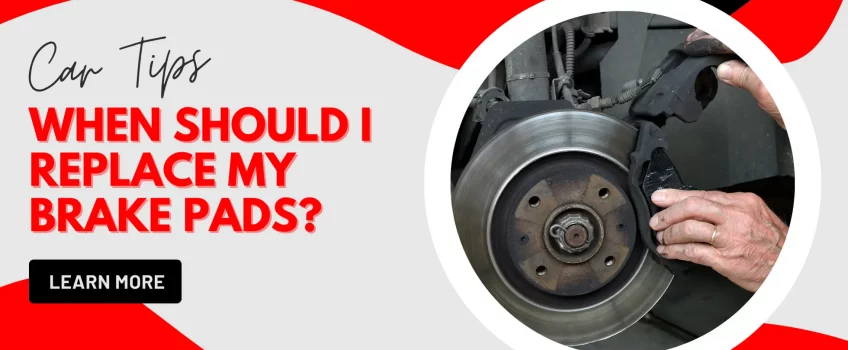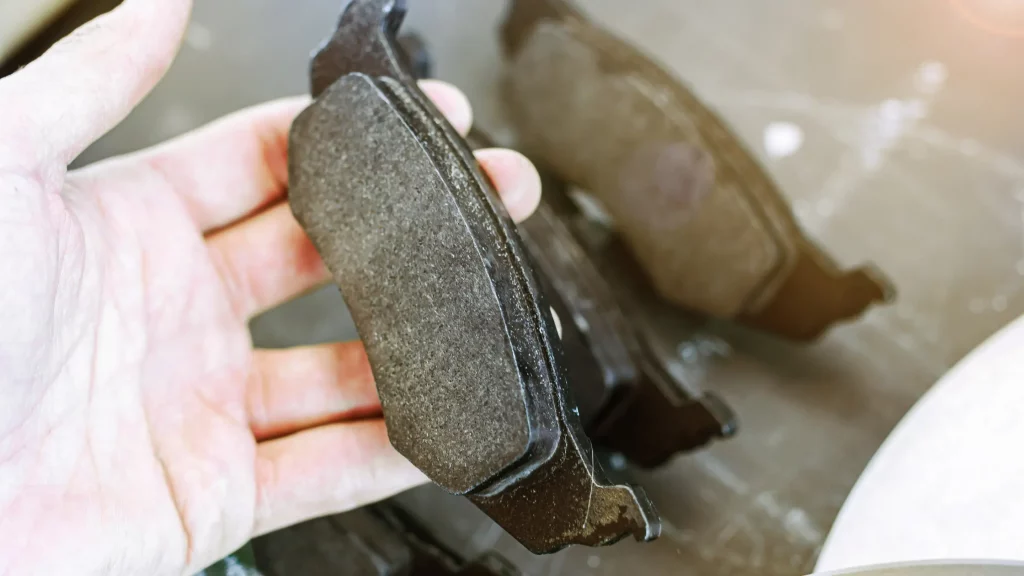
Brake Pads Maintenance: Tips to Keep Your Vehicle Safe
Brake pads are an essential component on your vehicle as you won’t be able to safely reduce speed or stop without them. The problem is, brake pads wear down over time and you will need new ones to ensure optimal performance but how often do brake pads need replacing? In this article, we’ll answer that question along with expert advice on vehicle maintenance and how to make your brakes last as long as possible.
What are Brake Pads?
At the core of most vehicle’s braking systems you will find a pair of brake pads, an accompanying calliper for each side on every wheel and a single brake disc that moves with the rotation of your wheels. When you push the brake pedal, hydraulic pressure in the calliper causes the two pads to apply friction against a rotating disc on each wheel. This engagement produces resistance which ultimately slows and brings your vehicle to a stop.
Different Types of Brake Pads
Brake pads are made up of a variety of materials, including ceramic, metallic, and organic compounds which offer different performance characteristics.
- Ceramic brake pads are made of highly advanced ceramic material that offers superior stopping power while creating less dust. Although more durable, they are also the most expensive.
- Metallic brake pads are composed of steel fibres and other metals, offering high performance but can be noisy during operation.
- Semi-metallic or Low-metallic brakes provide the perfect balance of performance and noise reduction, as they are crafted from a combination of ceramic and metal.
- Organic brakes are the most affordable and while they are softer and quieter, they often wear out faster and may require more frequent brake replacement services.
Also Read: The Different Parts Of Your Car’s Braking System And What They Do
When Should I Replace My Brake Pads?
Regularly monitoring your brakes is a must, and so is replacing them when necessary. While most manufacturers suggest a brake replacement every 30,000 to 70,000 miles, this can vary based on your driving habits, the vehicle make or model and the road conditions. Ideally, you should have your brakes inspected every 10,000 miles or once a year when doing your vehicle service.
If the brakes are making a loud squeaking or grinding noise during operation, then it’s time for a replacement as this indicates that the pads have worn down too far and could be damaging other components. Other signs of worn or damaged brake pads include:
- Reduced braking performance
- Excessive vibration on the brake pedal
- Uneven wear on the pads
- The vehicle pulling to one side when applying the brake
Tips to Make Your Brake Pads Last Longer
As with everything else in your car, if you look after your brakes, they will take care of you. Here are some tips to maintain your brake pads and ensure they last as long as possible:
- Keep your brakes in top condition by regularly cleaning them as dirt, dust and debris can accumulate, leading to accelerated wear.
- Stay proactive and routinely inspect your brakes for any signs of wear or damage. If you notice any irregularities, book a brake replacement as soon as possible.
- Avoid sudden and forceful braking as it can have an adverse effect on the lifespan of your brake pads.
- Don’t overuse your brakes when going downhill, for example, as overheating them could cause premature wear.
- Before to any journey, make sure to remove all unnecessary items from your vehicle, including things from the boot and the roof rack if it’s not in use.
What is Brake Fluid and Why is it Important?
Brake fluid is a type of hydraulic fluid used in the braking system of vehicle and motorbikes. It provides the necessary pressure for brake operation and helps maintain control when stopping or slowing down. In addition, brake fluid can be used to lubricate certain components of a braking system such as callipers and wheel cylinders. This helps reduce friction and allows for smoother operation when braking.
The importance of brake fluid cannot be underestimated as a properly functioning braking system is essential for safe driving and avoiding accidents. Over time, brake fluid may become contaminated with moisture or other substances that can damage components in the braking system. As such, it is recommended to periodically change and flush the brakes to prevent any serious damage or wear.
Note: If you need new brake fluid, at Elite Garages, a brake fluid change is from £45*.
Why Should I Change My Brake Fluid?
Regularly changing your car’s brake fluid is an essential part of general vehicle maintenance. Over time, small bits of rubber, rust and other debris could filter through from the brake pads or other components and into your brake fluid which will reduce its effectiveness. If this happens, you increase the risk of a dangerous situation where your brakes may not function as they should.
Brake fluid helps keep your brakes functioning properly and prevents corrosion or sediment buildup that can cause damage down the line. Regular brake fluid changes also help prevent wear on other components of the braking system, like the master cylinder and brake callipers. New brake fluid also has a higher boiling point which helps ensure your brakes will work in high-temperature environments.
How Much Does It Cost To Replace My Brakes Pads?
In the UK, the cost of replacing brake pads can vary significantly as it depends on the vehicle make and model and the type you choose. For example, at Elite Garages, brake replacement starts at £80* but it can be considerably more, especially if you have a high performance vehicle and when you fit ceramic brakes.
It’s important to replace car brakes regularly as part of your vehicle’s routine maintenance programme. If you don’t replace them in time, it can lead to serious damage which will cost even more money to repair. It’s best to be proactive and replace your brake pads before they reach a dangerous level of wear and tear.
Conclusion
Overall, it is essential to ensure that your brakes are in excellent working condition at all times. Regularly cleaning and inspecting them for signs of wear or damage can help prolong their life along with following good driving habits and avoiding sudden braking.
It’s also important to replace brake fluid as this helps prevent corrosion and sediment buildup which could lead to serious damage in the future. Finally, replacing worn-out brake pads on time will save you money in the long run as they must be replaced as part of a routine vehicle maintenance schedule.
By following the tips outlined in this guide, you can keep your brake pads in good condition and enjoy a safe and smooth driving experience! If you suspect something may be wrong with your brakes, please book a free brake check or a brake replacement service!
* Disclaimer:
The price is only an indication of the minimum cost and customers should contact their nearest Elite branch for more information.
It’s often a good idea to replace all four brake pads at once but it’s not necessary as they are designed to wear evenly across all the wheels. The decision depends on the specific circumstances of your vehicle and driving habits but it’s always best to consult with a professional vehicle technician to determine the best course of action. Book a brake replacement service!
The average lifespan of car brake pads is around 30,000 to 70,000 miles. Of course, this depends on the kind of driving you do and how well you maintain your vehicle. If you drive more aggressively or don’t keep up with regular maintenance, then your brake pads may need to be replaced sooner.
Most cars have a warning light on the dashboard which will appear if your brake pads are starting to wear down. You may also hear squealing or grinding noises when you press down on the brake pedal, which indicates that it is time for a change. If you notice any of these signs, we recommend getting your brakes checked as soon as possible. Book a free brake inspection now!
About Us
Opening Times
Saturday : 8:30–4:00
Sunday : closed
More Information
Contact UsCustomer Information Pack
Check MOT Due Date
Free MOT reminder
Careers
Legal Information
Recent Posts
- MOT in Brighton: Your Essential Guide to Testing, Servicing and Tyre Safety
- Uneven Tyre Wear Explained: Is It Time for a Wheel Alignment Service?
- Is Your Track Rod End Causing Wheel Alignment or Suspension Problems?
- Brake Repairs in Bournemouth: Why Stop-Start Roads Are So Tough on Your Car
- MOT in Dorchester: Keeping the South Coast Safely on the Move



